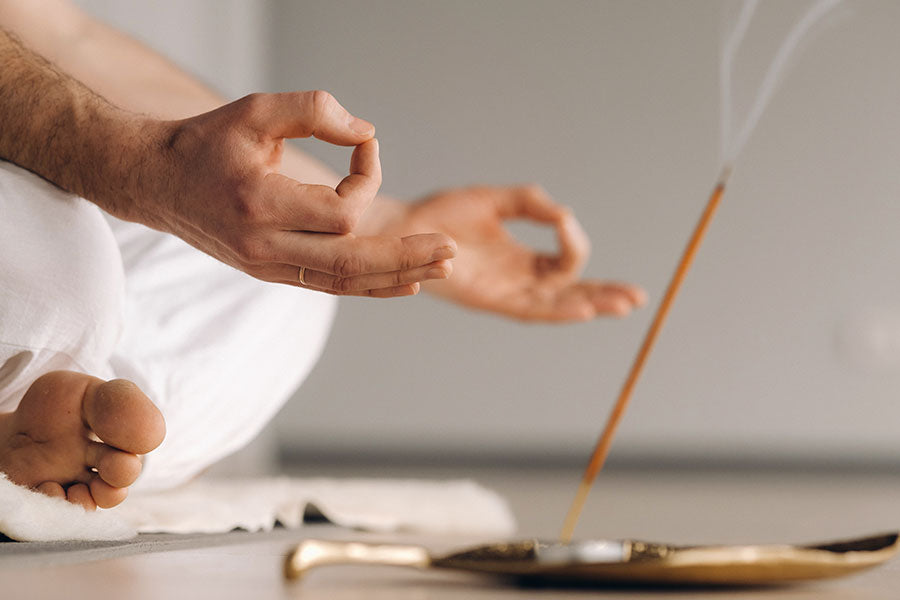You have something in the neighborhood of 70,000 ideas daily, and those thoughts affect every feeling you experience and every decision you make. You may not be able to stop the ideas that come into your head without conscious effort, but you are in charge of how you react to them when they do.
The most brilliant insights often occur to us when we are least expecting them.
Consider the apple dropped by Newton, the development of aspirin, and Steve Jobs' decision to develop the iPhone. One way all great visionaries are like you is that they all started out as regular people. When you're in the correct frame of mind, you'll start having ideas to improve your life and career.
Your ability to perform at your best will be sapped if you give credence to your self-doubt, worry excessively about things you have no power over, and dwell unproductively on the negative. However, you may strengthen your mind by reinterpreting negative ideas, not dwelling on them, and consciously teaching your brain to think in a new way.
Thought exercises help us do just that, it allows us to calm our thoughts and put more conscious effort into making unique ideas instead of crying over the past.
What Are Thought Exercises?
By learning to separate yourself from your thoughts, you may stop letting them control you.
Psychologist Steven C. Hayes developed an acceptance and commitment therapy (ACT) treatment that aims to promote mental agility via practicing mindfulness and other behavior-altering tactics, such as multiple thinking exercises.
The primary premise of ACT is that our grief is not just the result of negative events. The discomfort we feel as a result of our own thoughts and emotions concerning these encounters is what causes our suffering.
For decades, ACT has been widely used with positive results all across the globe. An extensive meta-analysis including 133 trials and 12,477 people demonstrates that ACT is a successful treatment for various diseases.
Best Thought Exercises
The following are six easy and effective strategies for increasing your mental capacity, inspiration, and vitality.
1. Imagine the Exact Opposite
We all know what it's like to feel down in the dumps. Everything seems gray and bleak, and it feels like there's nothing to look forward to. But what if you could imagine the exact opposite? Instead of feeling hopeless, you would feel hopeful. Instead of seeing problems, you would see solutions. And instead of feeling like you're stuck in a rut, you would feel like anything is possible.
Just by changing your perspective, you can transform your entire outlook on life. So next time you're feeling down, try imagining the exact opposite. It just might be the boost you need to turn your whole world around.
Arguing both sides, the extremely negative and the overly optimistic may help you arrive at a more reasonable middle ground than you would have otherwise. Additionally, it may help you understand that there are many alternatives and that the "worst-case scenario" is only one of the many conceivable outcomes.
Related Article: 6 Effective Ways to Ease Anxiety Without Medication
2. Put Your Flaws Into Context
No one is perfect. We all have flaws, weaknesses, and imperfections. And that's okay! Accepting and embracing our flaws can be an important step in the journey of self-acceptance.
We have the propensity to criticize and belittle ourselves over aspects that we don't enjoy about ourselves. We lose sight of the positive aspects of ourselves at these times and focus only on imperfection.
Consider the following scenario: you come home to a dirtier house than you would want. You may get frustrated with yourself for being a "lazy slob."
Your sense of self-worth and compassion for yourself will suffer as a result of this kind of labeling. It is also possible that it may work against you, making it more difficult to take any action to address the issue. It is possible that if you call yourself a "slob," you will behave in a manner consistent with that description.
When things aren't going as planned, you probably have the propensity to criticize yourself. To combat this inclination, try asking yourself the following questions:
- Does this error or failure mean I no longer have any redeeming qualities?
- Is it reasonable to conclude that I am a complete and utter bust due to this circumstance?
- Alter the story so that it reads: "When I'm stressed out, I become dirty." However, I can begin working on this today.
Of course, it's not always easy to look at our flaws in a positive light. It can be tempting to dwell on our shortcomings and allow them to define us. However, it's important to remember that our flaws are just a small part of who we are.
They do not define us as individuals or determine our worth. Instead, they add nuance and complexity to our lives. By putting our flaws into context, we can learn to appreciate ourselves - flaws and all.
3. Defusing Your Thoughts
It's easy to get caught up in our thoughts and get wrapped up in what they say. Our thoughts can be like a broken record, repeating the same repeatedly. And sometimes, it can feel like we are our thoughts and that we must believe everything they tell us. But that's not true!
We can choose what we believe and don't have to listen to every thought that goes through our heads. Just because a thought pops into our heads doesn't mean it's true or useful.
Most of our lives are spent in a condition of cognitive fusion when we blindly accept our beliefs as true. Cognitive defusion is a strategy for separating oneself from distressing ideas and emotions.
One way to help manage these stuck thoughts is to do a cognitive defusion exercise. This involves taking a step back from the thought and observing it as if it were just another object in your environment. For example, you might say, "There's that thought again. It's just a thought; it doesn't mean anything." By doing this, you're acknowledging the thought without getting caught up in it. This can help you to feel more in control and less overwhelmed.
If you struggle with distressing thoughts, give cognitive defusion a try. It may take some practice, but it can be a helpful tool for managing difficult thoughts.
4. Embrace Self Doubt
Self-doubt is a necessary component of success. Research suggests that admitting to some uncertainty about your abilities might boost performance even more than total assurance.
If you don't believe you can do well on an exam or you think your opponent has the upper hand in a game, you'll probably study harder and pay closer attention to what they're doing.
While the final result may be out of your hands, your effort and outlook are always in your power. So, if you're ready to accept your self-doubt and put in maximum effort, you could find that you get your best results yet.
Related Article: 15 Quick and Easy Ways to Get Motivated to Exercise When You are Depressed
5. Express Gratitude
One simple way to feel happier is to express gratitude. You can do this by taking a few minutes each day to think about the things you're thankful for in your life. It could be big things, like your health or supportive family and friends. Or it could be small things, like a sunny day or a delicious cup of coffee. The important thing is to focus on the positive aspects of your life, no matter how big or small they may be.
When you take the time to appreciate the good things in your life, you'll start to see just how much there is to be grateful for. And that can make all the difference in how you feel every day.
Gratitude has been shown to improve not just your mood but also your relationships, the quality of your sleep, and your overall health. According to research, those who regularly practice gratitude have a longer lifespan.
Expressing thankfulness simply takes a few minutes of your time, whether you keep a gratitude book and write before bed or share with your loved ones what you're grateful for during a meal. One of the best ways to combat negative feelings like jealousy and self-pity is to take stock of your blessings.
6. Change the Channel
Solving problems is beneficial, but dwelling on them is detrimental. You are doomed to remain buried in gloom if you continue to dwell on things that you have no power to alter, relive events that have already taken place and fret about matters over which you have no influence. If you are ruminating on anything, try switching the channel in your head.
Engage your mind and body in an activity that will force you to pay attention while simultaneously getting you moving.
To take your mind off the situation, try going for a walk, conversing with a friend about something different, or doing housework. Changing the channel may assist you in retraining your brain to think more positively and beneficially. You may also develop an at-home workout routine, using simple accessories like a yoga mat or dumbbells to destress yourself.
FAQs
1. How can thought exercises help improve my mental health?
Thought exercises can help improve mental health by improving cognitive function, helping to focus the mind, and increasing self-awareness. Some specific exercises can help include mindfulness meditation, visualization, and positive affirmations.
Thought exercises are activities that help you focus on your thoughts and how they affect your mental health. By practicing thought exercises regularly, you can learn to control your thoughts better and improve your overall mental well-being.
2. What are some common types of thought exercises?
Thought exercises can help improve mental health by improving cognitive function, helping to focus the mind, and increasing self-awareness. Some specific exercises can help include mindfulness meditation, visualization, and positive affirmations.
Some common types of thought exercises are:
- Mindfulness meditation
- Visualization
- Positive affirmations
- Journaling
- Brainstorming
- Problem-solving
3. How often should I do thought exercises?
The answer may depend on your goals. If you're simply trying to stay sharp, doing a few weekly exercises may be enough. But you'll need to commit to a daily brain workout if you hope to see great improvement.
Fortunately, there are plenty of ways to exercise your brain, so you can find an activity that fits your schedule and interests. So there's no excuse to start reaping the benefits of thought exercises today.
4. Are there any risks associated with doing thought exercises?
Certain thought exercises can be risky, particularly if they involve self-reflection or delve into sensitive topics.
For example, people struggling with depression or anxiety may find that thinking about their problems actively makes them feel worse. In addition, some people may have traumatic memories that they would prefer not to think about, and forcing themselves to do so can be very upsetting.
However, there are also many benefits to doing thought exercises, such as improving problem-solving skills and increasing creativity. As with anything, it is important to use caution and be mindful of your mental state before attempting any thought exercise.
Take Away
Most of us have a never-ending stream of ideas and evaluations in our heads at any moment. Because of our thoughts' power over us, we are susceptible to being paralyzed by them. However, things don't need to be in this state.
Our ideas' power over us is diminished when we take active steps to bring them into the light and perceive them from a new perspective. We can detach ourselves from them and recognize them for what they really are: fleeting thoughts.











